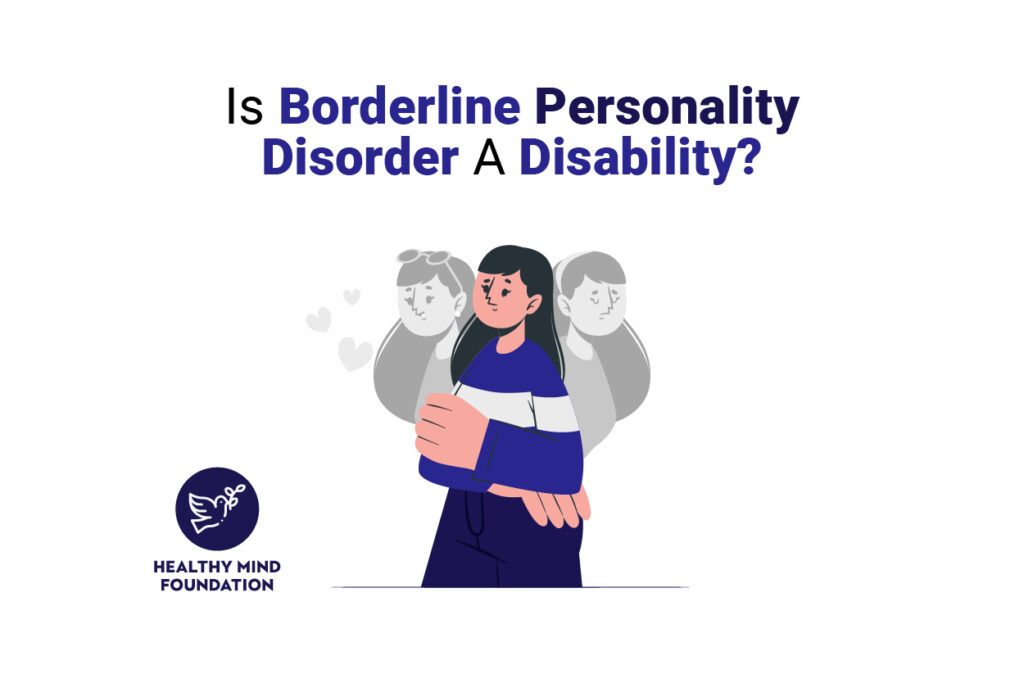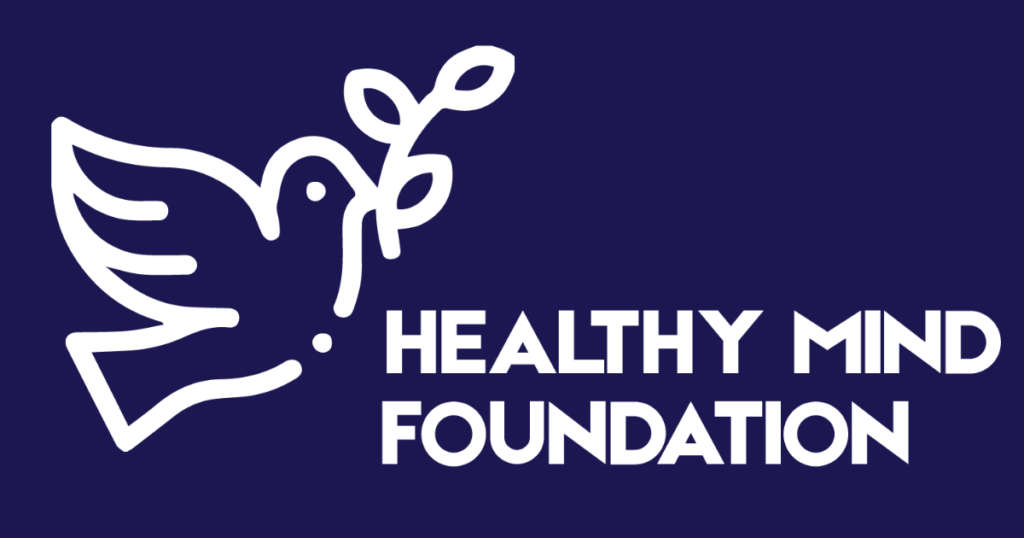When it comes to mental health conditions, the question of whether they can be considered disabilities is a controversial and debated issue.
If we talk about borderline personality disorder, also called BPD, it’s an incredibly difficult condition.
People with this condition experience unstable emotions, relationships, and issues with self-image.
The symptoms of BPD can seriously affect a person’s life and their ability to function under different circumstances.
Below we will address the question at hand: Is borderline personality disorder a disability?
Let’s get right into it.
What is Disability?
Disability, according to different organizations, is a physical or mental impairment that substantially affects a person’s competency to perform major life activities.
What is Borderline Personality Disorder?
Borderline Personality Disorder, or BPD, is a mental health condition where people have a hard time managing their feelings and thoughts. It can also cause impulsive behavior and trouble with relationships. The feelings can be very intense and can change quickly.
Symptoms of Borderline Personality Disorder
People with BPD might:
- Have very intense feelings that can change rapidly.
- Find it hard to stay calm and comfortable when they’re alone.
- Have difficulty maintaining stable relationships.
- Act impulsively, like spending recklessly, eating disorderly, or driving dangerously.
- Have a persistent fear of abandonment.
- Have a negative self-image.
- Have difficulty trusting others.
- Experience intense anger and have trouble handling it.
- Feel empty or as if they are nobody.
- Have thoughts of hurting themselves or have a history of self-harm or suicide attempts.
These symptoms might vary, and not everyone with BPD will experience all of these symptoms.
It’s important to speak with a professional if you or someone you care about is showing these signs.
Reach out to us at Healthy Mind Foundation if you have these symptoms and need professional management and treatment.
Subtypes of Borderline Personality Disorder
A framework for understanding and treating Borderline Personality Disorder exists within the psychological health field.
These subtypes include:
- Discouraged Borderline: Generally showing depressive features, the person might show clingy and codependent behavior, intense fear of abandonment, and submissive tendencies.
- Impulsive Borderline: Displays sensory stimulation, immediate gratification, and tendencies toward thrill-seeking actions, conducive to erratic behaviors.
- Petulant Destructive Borderline: Shows pervasive mood inconsistency and unpredictable anger. People might struggle with feelings of unworthiness and act out passive-aggressive behaviors.
- Self-Destructive Borderline: This subset often faces inner-directed anger, leading to self-harming behaviors or substance abuse as a coping mechanism for negative emotions.
Is Borderline Personality Disorder a Disability?
Does BPD qualify for disability?
The possibility that BPD is considered a disability is quite complicated, as it depends on multiple aspects, including:
- Personal reasons.
- Legal regulations.
- Societal perceptions.
The classification of BPD as a disability differs by context, even though it is considered a mental health condition by medical professionals.
Legal Terms and Disability Benefits
Is BPD a disability? In some areas, BPD might meet the legal criteria for disability.
Government agencies and institutions follow specific guidelines for determining disability.
In many cases, they involve assessing functional impairments and their impact on a person’s ability to work or perform daily tasks.
People who suffer from severe BPD are considered disabled under the Americans with Disabilities Act (ADA).
Under the guidelines set by the Social Security Administration (SSA), borderline personality disorder can be recognized as a disabling condition when it substantially interferes with vocational responsibilities.
Eligibility for Social Security Disability (SSD) for BPD is based on strict criteria.
BPD must be documented comprehensively to prove disability.
To obtain borderline personality disorder disability benefits, an assessment of eligibility is necessary.
Supplemental Security Income – SSI for BPD
There’s an important question we want to address: Can you get SSI for borderline personality disorder?
Supplemental Security Income (SSI) is a federal program for people who have limited income and resources and are aged, blind, or disabled.
The Social Security Administration (SSA) oversees SSI, which is based on a thorough assessment process.
To qualify for SSI based on borderline personality disorder requires proof that the condition greatly limits one’s ability to work.
As with other disabilities, the SSA follows a strict assessment procedure.
A person seeking to secure BPD disability benefits or SSI for borderline personality disorder must follow BPD disability requirements and provide extensive medical records that describe how their symptoms limit them from working.
Moreover, compliance with prescribed treatments and the response or lack of it play an important role in the SSA’s deliberation process.
To demonstrate the extent to which BPD affects work capabilities, mental health professionals must be engaged.
Seeking Borderline Personality Disorder Disability Benefits
If you believe working with BPD is hard and you’re unable to carry out daily activities, you might want to consider applying for BPD disability benefits.
However, keep in mind that the process can be complex, and could require:
●Medical documentation.
●Assessments.
●Evidence/proof of functional impairments.
Consulting with a healthcare professional, mental health advocate, or disability lawyer during the application process can be helpful.
For advice and support, please reach out to us at Healthy Mind Foundation.
The Importance of Personal Assessments
It is important to note that not everyone with BPD will consider themselves disabled or require disability benefits.
Each person’s experience with BPD varies, and the effects on functioning vary as well.
It is essential to approach the topic of disability with empathy, understanding, and respect for each person’s circumstances and viewpoints.
Support and Treatment for BPD
For those living with BPD, seeking appropriate support and treatment is essential.
Therapeutic measures are important.
Dialectical Behavior Therapy (DBT), can help people develop:
- Coping strategies.
- Regulate emotions.
- Improve interpersonal relationships.
Support groups and community resources can also provide valuable assistance and a sense of connection for people with BPD.
Healthy Mind Foundation provides treatment options and resources for people dealing with BPD.
Changing Perceptions and Advocacy
As society continues to evolve its understanding of mental health, perceptions of BPD and other mental health conditions as disabilities could change.
Advocacy efforts play a valuable role in raising awareness, fighting stigma, and improving opportunities for those with BPD.
By working together, we can build an inclusive society that supports all people’s mental well-being and needs, regardless of their condition.
Final Thoughts
Is borderline personality disorder a disability? BPD can be considered a disability if it meets the legal criteria for a disability in some jurisdictions.
Can you get disability for borderline personality disorder?
It depends on:
●Jurisdictions.
●Your personal circumstances.
●Functional impairments.
●Societal perceptions.
These all play a role in determining disability status.
It is essential to review local laws and regulations and seek guidance from professionals when considering disability benefits.
Regardless of disability status, seeking proper support, treatment, and understanding is essential to those living with BPD.
Let’s work together to build a society that welcomes and supports the mental health of all people, regardless of their condition.
If you need more info and resources on Borderline Personality Disorder, you can reach out to us at Healthy Mind Foundation.
FAQs
Can you get disability for BPD (Borderline Personality Disorder)?
Yes, it’s possible to be eligible for disability benefits for BPD if the symptoms severely limit one’s ability to function in a work environment.
How to be eligible for borderline personality disorder social security benefits?
To be eligible for Social Security benefits with Borderline Personality Disorder, you must:
- Medical documentation is needed to prove the disorder interferes with your ability to work.
- The evidence shows persistent patterns of instability in interpersonal relationships, self-images, and affects, along with marked impulsivity, beginning in early adulthood.
- Additionally, you should show how your BPD meets the criteria outlined by the SSA.
Can you receive a BPD Disability Living Allowance?
BPD might be eligible for Disability Living Allowance depending on the jurisdiction.
How much disability do you get for BPD?
You’ll get a different amount of disability benefits based on your circumstances and the specific program you’re applying for.
Are there special considerations for BPD and work?
Managing BPD at work involves special considerations, including accommodations under certain disability laws.
Borderline Personality at work – can someone function well?
With the right support and accommodations, many people with BPD can thrive at work.
Can you have Borderline Personality Disorder and Schizophrenia concurrently?
Although it is less common, it is possible to have BPD and Schizophrenia at the same time, requiring customized treatment.
What are some feasible careers for people with BPD?
People with BPD may benefit from careers that have structured environments and minimize interpersonal stressors.


